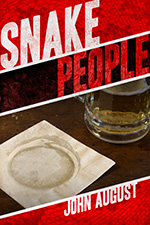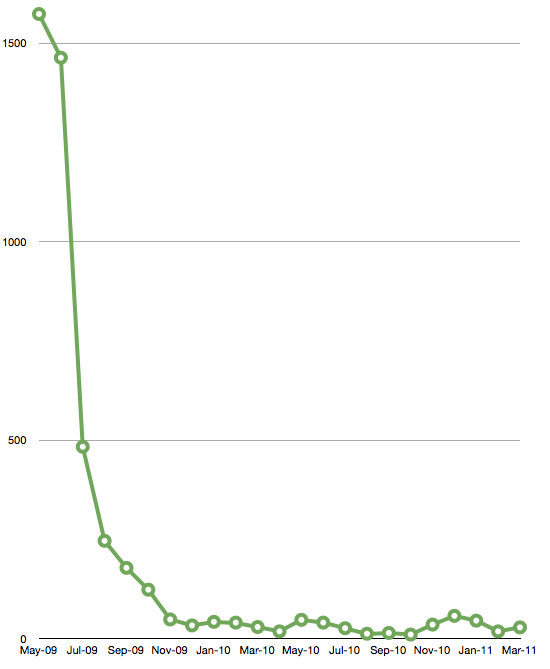Last week, I [ran an experiment](http://johnaugust.com/2012/spelunking-the-kindle-market-contd) to see what would happen if I took one of my existing Kindle titles and made it free for three days.
[Snake People](http://www.amazon.com/Snake-People-ebook/dp/B004H8GF0U/) got a lot of downloads. Over the three days, it “sold” 654 times. It climbed the charts, topping out at #7 on Kindle’s free short stories list.
Since returning to its normal price of 99 cents on Saturday, it sold seven more copies. It no longer shows up on any of the best-seller charts. In no way did it catch fire.
However, if you compare those seven copies to how many it would have sold in a normal week — 2.2 copies on average — the free promo seemed to at least bump the needle. There was also a fair amount of spillover to my other Kindle title ([The Variant](http://www.amazon.com/The-Variant-ebook/dp/B0029ZAPRW/)), which sold 13 copies, up from its average of five.
In another week or two, I suspect Snake People numbers will be back where they were before the promo. I’ll post another update if I’m wrong.
So, was going free worth it? Hard to say.
It certainly increased sampling, and it was gratifying to see readers tweet about it, particularly those who stumbled across it on the best-seller chart and took a chance. I strongly doubt it cost me any buyers; the people who got it free hadn’t been holding off, waiting for a sale.
In the end, I’m hesitant to even label this an experiment because the numbers are so sketchy. I’d hoped to provide a graph showing how many copies were sold based on which spot it reached on the best-seller list, but I can’t. Amazon’s sales figures are maddeningly murky. You can’t be sure how often they’re updated, so any correlation is suspect.
As Snake People was rising on the best-sellers chart, the dashboard report would only show five more copies had sold. An hour later, 100 more sales showed up. Were those additional sales the cause or effect of moving higher in the best-sellers chart? There’s no way to know.
Most writers are probably better off writing new stuff than spending a lot of time gaming the Kindle publishing platform. That said, the spillover effect from one free title to other paid titles probably merits some attention, particularly for authors with many titles available for sale. If I had 15 books for sale on Kindle, rotating free sales periods among them would be a way to increase exposure and probably bring in new paying readers.

